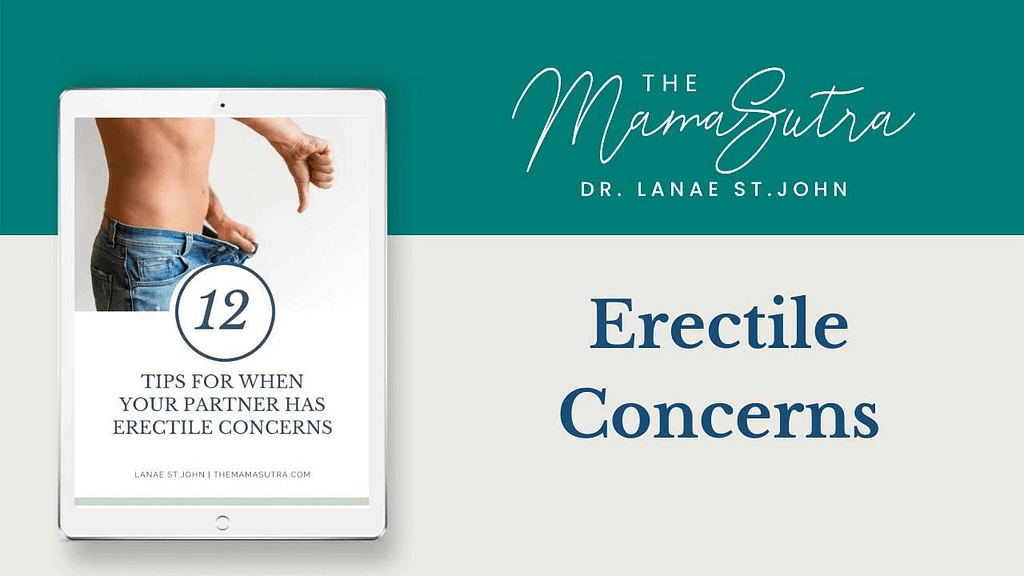Sexuality and intimacy does not end as you age. After all, it is called a sex life, not a sex era.
I’m about to say some things about sexuality in aging that will likely offend some people – namely, those who are youth obsessed.
While sexual function may fluctuate throughout your life, sexuality and intimacy continue to evolve and deepen as you age. In fact, some say you have an even more fulfilling sex life as you age.
Ready to see how sex and intimacy in older adults is something to look forward to, celebrate, and learn from? Here’s how sexual function and desire evolves as we age.
Embracing Intimacy In Older Adults
I’ve heard many times from my sexologist colleagues that sex only gets better as people age. Anecdotally, as a 40-something myself, I can offer my own support of that view but don’t just take my word for it; There are plenty of sex positive resources to support this – many of whom are graduates from IASHS like me, Anita Hoffer, Gina Ogden, & Betty Dodson to name a few.
Another example, Jane Fonda, age 74, recently did an interview where she shared happiness, sexual satisfaction, and having found “true intimacy” with her current partner. Can I just say, that’s f’ing beautiful?
The current culture that thinks sex should be limited to reproductive purposes fails to acknowledge that sex is also healthy after 40, 50, 60, and on and on. Add the additional depth of Jane’s experience where I presume there is communication, consent, respect, pleasure, and I’d bet there’s a healthy dose of fantasy present as well and WOW.
All those wonderful years of figuring out who we are? It sounds like sexual intercourse only gets richer as one gets older as well when one finds a partner who meets them in that journey.
Confronting Stereotypes And Judgment
Which brings me to another question: why do so many people have a hard time accepting others who are older than ourselves being sexual – while at the same time asserting that we plan to be sexual when we reach that ripe old age?
There’s judgment about older adults being sexual – is this because they aren’t making babies? There’s also an attitude of “that’s not going to happen to me” – Did we learn nothing when we were adolescents thinking the same thing? Sex is a very healthy aspect of our adult life and such a tremendous part of who we are in general – why would we think that would change as others get older?
How Adult Sexuality Changes
From the thrill of first crushes to the wisdom of golden years, our sexual desires and experiences are an evolving tapestry. Let’s explore this journey from puberty all the way through old age.
Puberty often feels like a tempest of emotions and hormones, awakening a raw, magnetic curiosity about sexuality. It’s a time when desire is closely linked to exploration. We stumble our way through the maze of first kisses, crushes, and awkward encounters, learning how our bodies respond and what ignites our passions. In this period, desire can feel like an untamed flame, sparking intensely and burning brightly but sometimes fleetingly.
As we move into our 20s and 30s, desire matures and deepens. Here, sexuality is often intertwined with identity and self-discovery. Our confidence blossoms, and we’re more in tune with what we want (and don’t want). Relationships become more meaningful, and intimacy with partners takes on a richer, more nuanced flavor. However, juggling careers, families, and responsibilities can sometimes dull that initial spark, leading to a recalibration of how we express and prioritize our sexuality.
In our 40s and 50s, the ebb and flow of life’s changes—whether it’s the demands of parenthood, the shifts in long-term relationships, or even the onset of menopause—reshape our sexual landscape. While desire might wane for some, others find liberation in embracing their bodies with renewed confidence and creativity. Many discover that intimacy isn’t just about sex but encompasses emotional closeness, shared humor, and the deep-rooted comfort that comes from truly knowing a partner.
It was around this time that I had an eye-opening experience at Harbin Hot Springs, a beautiful, peaceful, clothing-optional retreat north of San Francisco. Inspired by my boyfriend’s reading of John Robbins’ Healthy at 100, I tried to view my environment through a different lens. Robbins suggests that our youth-obsessed culture in America views aging the wrong way, idolizing youth while overlooking the wisdom, knowledge, and experience that come with age.
Observing a group of four twenty-something girls bounding and prancing like gangly young deer on wobbly legs, I realized how out of place they seemed. Instead of wishing to be like them, I felt relieved that I wasn’t there anymore. Everyone else with a few more years on the clock was relaxed and confident, not the least bit interested in what these young women were doing. It was clear that age brought a certain wisdom and acceptance, especially at Harbin, where most visitors were over 35.
This newfound confidence becomes a key part of our sexuality as we age into our 60s and beyond. Many older adults remain sexually active, defying the stereotype that aging equals a sexless existence. Sexual expression becomes less about frequency and more about quality, often prioritizing emotional intimacy and tenderness over performance. There’s also a sense of liberation, where older couples explore desire in new ways, whether through humor, creativity, or simply holding hands in the warmth of shared memories.
Ultimately, sexuality is a lifelong journey, shifting with our needs, experiences, and the rhythms of our bodies. Embracing these changes with open arms can lead to a fulfilling, rewarding sexual life at any age.

Common Aging Related Challenges In Sexuality And Intimacy
As we age, our bodies and lives undergo significant transformations, and these changes can influence our sexuality and intimacy. While some challenges are about physical changes, others are rooted in emotional or societal factors. Let’s dive into some common aging-related challenges with sexual function and explore how to navigate them.

Hormonal Changes
Hormonal shifts can play a major role in changing our sexual landscape. For women, menopause often brings about a decrease in estrogen levels, leading to symptoms like vaginal dryness, hot flashes, and changes in libido. These symptoms can affect sexual function and make sexual intercourse uncomfortable or even painful. However, treatments like hormone replacement therapy, lubricants, and open communication with a partner can help women maintain an enjoyable sex life.
Men may experience a decline in testosterone levels, which is part of normal aging and can sometimes result in erectile dysfunction (ED) or reduced sexual desire. While ED can be frustrating, it’s important to remember that it’s common and treatable. Medications, lifestyle changes, and counseling can help men address these issues and sustain intimacy with their partners.
Hormonal changes affect sexuality, but understanding these shifts as part of normal aging and addressing them with your health care provider can help keep intimacy thriving.
Experiencing erectile dysfunction? Download my ED Concerns – Tip Sheets for the do’s and don’ts for maintaining a healthy, happy relationship.

Chronic Health Conditions
Chronic illnesses like diabetes, arthritis, heart disease, and neurological conditions can really put a dent in our sexual function, sexual interest, and overall sexual health. Pain, fatigue, and medication side effects can make intimacy feel like a daunting task. Arthritis, for instance, can limit mobility, while heart disease might sap our stamina. And those medications? Sometimes they come with frustrating side effects like reduced libido or erectile dysfunction.
But here’s the thing: intimacy can still thrive despite these challenges. It just takes a bit of creativity. Try adapting sexual activities to be less physically demanding or explore different forms of intimacy like massage and mutual touch. It’s all about finding ways to maintain that fulfilling connection.
And don’t be shy about talking to your health care provider about any sexual health concerns. They can offer practical advice on managing side effects, suggest treatments, or refer you to specialists like sex therapists. Navigating these challenges can be tricky, but with a little help from your provider and some open communication with your partner, you can continue to enjoy intimacy in new and meaningful ways.
Emotional and Psychological Factors
Aging often brings emotional challenges like anxiety, depression, and self-esteem issues that can influence sexual desire and performance. For instance, depression can lead to a diminished interest in sex, while anxiety may result in performance concerns. Low self-esteem, particularly related to age-related physical changes, can cause individuals to feel less attractive or desirable, affecting their confidence in intimate situations.
Societal stereotypes about aging and sexuality, such as the belief that older adults are asexual or uninterested in sex, can exacerbate these feelings of inadequacy or embarrassment. For women, post-menopausal changes like weight gain, hot flashes, or vaginal dryness may impact body image, while men may worry about erectile dysfunction or declining stamina. These concerns can create a self-fulfilling prophecy, leading to avoidance of sexual behavior altogether.
To overcome these challenges, it’s important to counter myths with self-acceptance and open dialogue with a partner. Seeking therapy, particularly with a sex therapist or couples counselor, can help address underlying emotional or psychological issues. Support groups for older adults dealing with similar challenges can also provide valuable insights and reassurance, helping individuals realize they are not alone.
By addressing these concerns head-on and understanding that emotional and psychological factors are a normal part of aging, seniors can regain confidence and build stronger, more fulfilling intimate relationships.
Loss and Grief
Losing a long-term partner or facing health challenges can deeply affect one’s approach to intimacy. Grief can diminish sexual desire or make it difficult to form new romantic connections. Finding new forms of companionship and intimacy, whether through friendships, dating, or personal activities like dancing, can help rebuild confidence and joy. Mental health professionals can also provide ways to process loss and grief in a way that supports intimacy and connection.
Changes in Relationship Dynamics
Long-term relationships evolve, and intimacy can take on new meanings over time. For some couples, physical closeness and sexual intercourse becomes less frequent, but emotional intimacy deepens.
Communicating openly about needs, preferences, and anxieties helps partners stay connected. Reimagining intimacy might involve focusing on non-sexual activities like cuddling, hand-holding, or simply sharing moments of laughter.
Practical Solutions and Support
Overcoming these challenges requires a multifaceted approach that includes medical support, open communication, and creativity in the bedroom. Talk with your health care provider about treatment options for hormonal changes, sexual dysfunction, or mental health concerns. Working with a sex coach can help you rediscover intimacy through new activities, exploring different forms of touch, or simply sharing fantasies can reignite passion.
Remember, aging doesn’t mean the end of your sex life. It’s just a new chapter in later life, and with confidence and creativity, you can continue writing a beautiful love story.

Common Questions About Senior Sexuality
Does sex drive decrease with age?
It’s a common belief that sex drive naturally dwindles as we age, but like many things in life, it’s not quite that simple. Sure, hormonal shifts and health changes can influence libido, but that doesn’t mean desire disappears. For many, sex drive evolves rather than diminishes. In our younger years, desire often feels intense and urgent, like a flame burning brightly. As we age, it can transform into a steady glow, driven by emotional intimacy, connection, and self-acceptance.
According to a National Poll on Healthy Aging, about two in three older adults (65%) described being interested in sex, with 30% being extremely or very interested and 35% somewhat interested. So while the intensity of sexual desire might shift, it certainly doesn’t vanish for everyone.
Hormonal changes like menopause in women and lower testosterone levels in men can have an impact, but staying healthy and communicating with your sexual partner can help keep the fire burning. Plus, many older adults find that a deeper understanding of their bodies and desires, coupled with the confidence that comes with age, allows them to explore sexuality in a more meaningful way.
Do old people get horny?
Absolutely! Desire is ageless, and older adults still experience arousal and sexual attraction. In fact, many seniors find their sexuality thrives in ways it never did before. With age comes the wisdom of knowing one’s body and preferences more intimately. The pressures of youth fade, and older couples often enjoy sex with a relaxed confidence, focusing on quality over quantity.
During my visit to Harbin Hot Springs, I saw this firsthand. People well past their 60s were comfortable in their bodies and embraced their sexuality without inhibition. While the stereotype of “old people” being asexual persists in our youth-centric culture, the reality is that many older adults remain passionate and adventurous in their sexual lives.
Do old people still have sex?
Absolutely, they do! The idea that sexual desire or activity stops with age is one of the most persistent myths out there. While it’s true that sexuality changes as we grow older, many seniors continue to enjoy satisfying and fulfilling sex lives well into their golden years.
A study by the National Poll on Healthy Aging found that 40% of people aged 65 to 80 have an active sex life. The reality is, sexual desire doesn’t have an expiration date, and neither does intimacy. Older adults often find that their sexual life become richer, more relaxed, and more deeply connected. They know what they like and have a deeper understanding of their own bodies and desires.
Sure, there might be challenges like hormonal changes, chronic health conditions, or emotional factors that impact sexual function. But creative solutions like using lubricants, exploring different forms of intimacy, and maintaining a healthy lifestyle can help couples overcome these obstacles.
Plus, the sexual confidence and wisdom that come with age can be liberating. Many older couples feel free to explore their sexuality without the pressures or insecurities of youth. And for those who are single, this can be a time to rediscover and celebrate their sexuality with new partners.
The National Poll also revealed that over half of older adults (54%) agree that sex is important to their overall quality of life, with 76% considering sex an important part of a romantic relationship at any age. While sexual activity decreases with age (46% for ages 65–70, 39% for ages 71–75, and 25% for ages 76–80), the desire for intimacy remains strong, regardless of age.
The Journey Of Sexual Self-Acceptance
I’ve posed lots of questions that I hope you think about as well. Let’s move away from celebrating youth as the only true source of “beauty and perfection”. Let’s be kinder to ourselves and embrace the aging process especially as it relates to sex. Love the wrinkles. Embrace the gray hair (ok, admittedly I’m working on this one…).
While you are having sex, think of the Journey (pleasure and enjoyment for both) and not about the Destination (ejaculation station). Respect our elders and accept that they too are sexual beings.
And if you have children, help them understand that sex between two lovers can be a beautiful thing… and just like the animals they see having sex in the zoo, grandmas and grandpas do it too.
xxoo The MamaSutra
Explore more about sexual desire on the blog:

